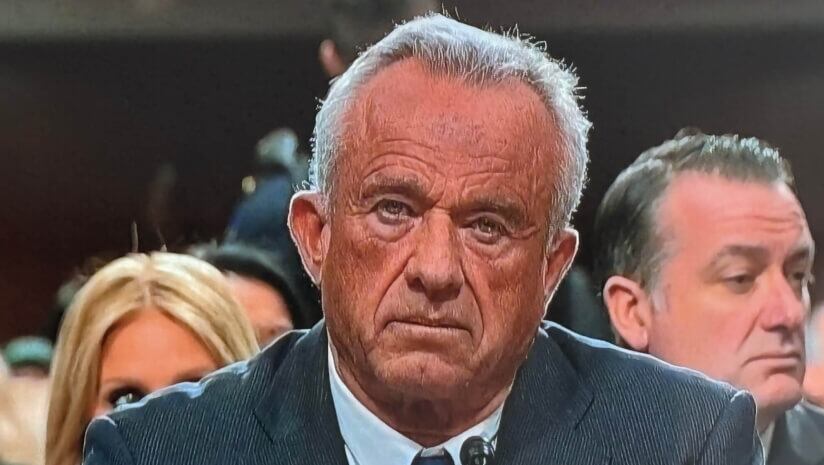In the 9 April interview, Kennedy disclosed new details from a closed-door meeting in March with executives from PepsiCo, Kellogg’s, General Mills, Smucker’s, Kraft Heinz, Tyson Foods and the Consumer Brands Association (CBA). He said the original 2029 target to remove artificial dyes has now been cut to just two years.
The meeting focused on advancing Kennedy’s ‘Make America Healthy Again’ initiative, particularly the removal of artificial dyes from the US food supply.
“They all have to be out within two years,” Kennedy told CBS, emphasising the industry must act quickly or face regulatory intervention.
Kennedy said companies acknowledged challenges, particularly in replicating the vibrant hues that synthetic dyes provide. “For example, the CEO of Pepsi, which owns Doritos, said … ‘The consumers like them to be very red and we have not yet found a vegetable dye that we can match, but we’re going to do it.‘”
Still, he described the tone of the meeting as cooperative. “It went very well,” he said. “I think they’re at the point where they see the writing on the wall.”
A shift already underway

The FDA announced in January that Red No. 3 will be banned from foods starting in 2027, citing studies linking the dye to cancer in rats. Other synthetic dyes, including Red 40, remain legal but are under mounting scrutiny.
“The dyes are clearly associated with a grim inventory of diseases,” Kennedy said, citing behavioural disorders, neurological conditions like ADHD and cancer. “They’re making, in many cases, the same products in this country with those dyes … they use vegetable dyes in Canada, Mexico and Europe.”
A 2021 report from California’s Office of Environmental Health Hazard Assessment also linked synthetic dyes to neurobehavioral issues in children.
Some companies have already begun reformulating. Kennedy noted that Tyson Foods is “down to one dye” and actively working on its removal. Kraft Heinz removed synthetic dyes from its boxed macaroni and cheese in 2016.
Industry feedback

In an email to the media, PepsiCo described the March meeting as “a productive first step” and reaffirmed its commitment to offering “more options with natural ingredients, no synthetic colours and reductions in sugar, fat and sodium.”
The CBA, which represents the country’s major packaged food brands, also called the conversation “constructive” in a letter to HHS, and said it remains committed to working with regulators.
Melissa Hockstad, president and CEO of the CBA, said the group is aligned with HHS on maintaining consumer access to “safe, affordable and convenient product choices.”
Texas investigates Kellogg’s over dye use

Kennedy’s crackdown comes as artificial dyes face new legal scrutiny. On 5 April, Texas Attorney General Ken Paxton launched an investigation into WK Kellogg Co over claims that cereals such as Froot Loops, Apple Jacks, and Frosted Flakes - marketed as ‘healthy’ -contain petroleum-based synthetic dyes linked to health risks.
Paxton’s office alleges the cereal giant may have violated consumer protection laws, citing potential links between these additives and hyperactivity, obesity, autoimmune disease, endocrine-related health problems and cancer.
“There will be accountability for any company, including Kellogg, that unlawfully makes misrepresentations about its food and contributes to a broken health system that has made Americans less healthy,” said Paxton.
Kellogg’s previously pledged to eliminate artificial dyes by 2018 but allegedly continues to sell cereals containing Red 40, Yellow 5, Blue 1 and Yellow 6 in the US - despite offering dye-free versions in Canada and Europe.
California has already banned Froot Loops from schools and West Virginia recently passed legislation banning several synthetic additives, including food dyes and preservatives, from most products sold in the state and all school nutrition programmes by 1 August 2025.
Kennedy’s department signalled that further regulatory action could follow.




